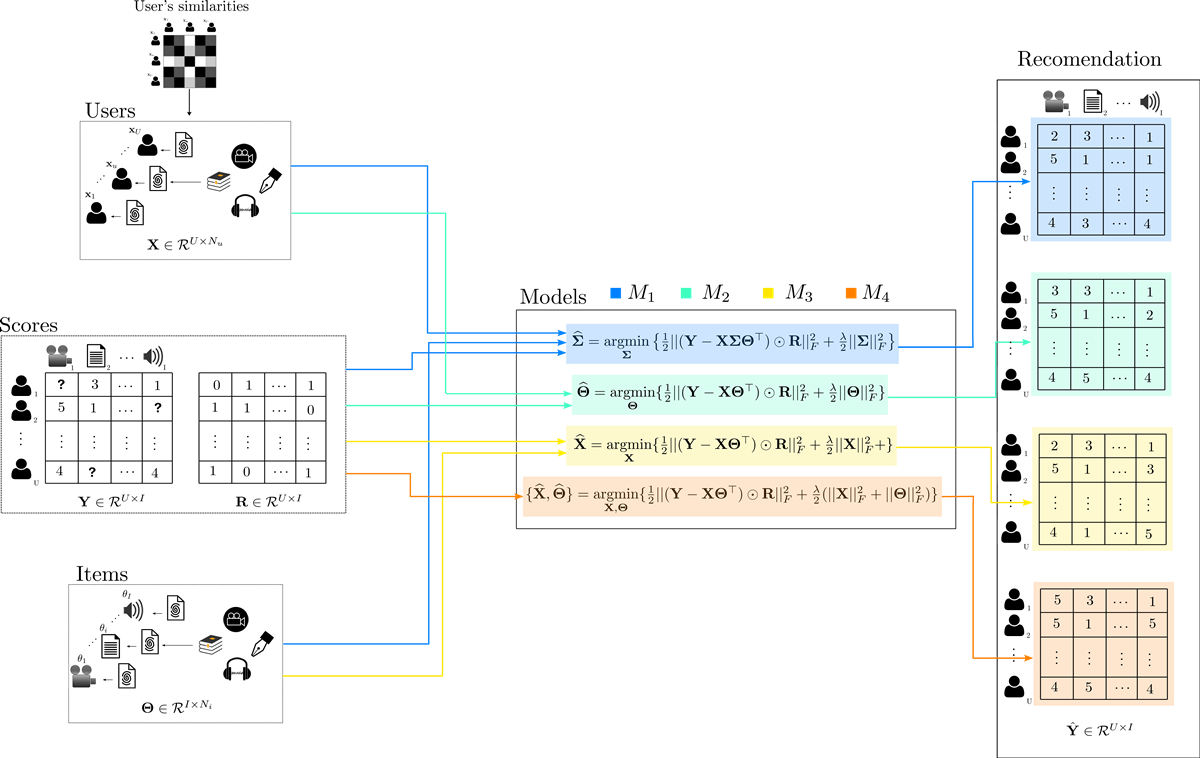One of the main challenges for autonomous learning in virtual environments is finding the right material that fits students’ needs and supports their learning process. Personalized recommender systems partially solve this problem by suggesting online educational resources to students based on their preferences. However, in educational environments (which need a proper characterization of both users and educational resources), most existing recommendation algorithms either fail to include all the available information or use hybrid processes that do not exploit possible relationships between users and item features. This article presents a personalized recommender system for educational resources aimed at combining user and item information into a single mathematical model based on matrix factorization. As a result, estimated latent factors can provide insight into possible interactions between users and item features, improving the quality of the information retrieval process. We validated the proposed model on a real dataset that contains the ratings assigned by students from Universidad Nacional de Colombia and Universidade Feevale to educational resources in the Colombian Federation of Learning Object Repositories (FROAC in Spanish). User characterization included learning style and educational level, whereas item characterization (obtained from the objects’ metadata), included interactivity level, aggregation level and type, and resource format. These results, compared to those obtained when not all the available information is included, show that our method can improve the recommendation process.

